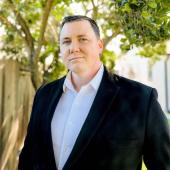
5th Battery and Energy Storage Conference Session 1: Manufacturing & Recycling
Wednesday, November 15 2:00PM-5:40PM CDT at Argonne National Laboratory in Lemont, IL
This session discusses topics including closed-loop manufacturing, sustainable recycling of battery production scrap, and new material concepts that are designed to be recyclable. Learn about current and future innovations and lessions learned in this session featuring leaders in the field.
We will touch on the future of battery technology in terms of sustainable manufacturing and environmental stewardship. These talks will share a profound understanding of the transformative forces at play in the battery industry and how these innovations are driving us toward a cleaner, more sustainable energy future. Join us for an unforgettable exploration of a world where batteries are not just powerful but also environmentally responsible.
Read more about this session's speakers below:
2:00-2:30PM: "Advanced Manufacturing of Oxide Electrolyte Batteries and 3D Electrodes"
Jeff Sakamoto, Professor, University of Michigan, Department of Mechanical Engineering
This presentation consists of three battery manufacturing topics: anode-free manufacturing of solid-state batteries, powder-to-part manufacturing of thin film oxide electrolytes, and manufacturing 3D electrodes to enable fast charge in Li ion batteries. Some oxide electrolytes offer stability against Li metal and can be synthesized and processed in air. The stability against Li can enable anode-free manufacturing, which can dramatically simplify cell formation and eliminate the need to process Li metal. Similarly, the ability to process oxides in air can simplify and therefore reduce the cost to densify membranes if it is possible to reduce the temperature and time required for densification. Therefore, approaches to reduce the energy intensity (Wh/membrane area) of oxide electrolyte densification are needed. Lastly, to enable fast or extreme fast charging (> 10C) of high areal loading (> 6 mAh/cm2), advanced 3D electrode design and manufacturing is required. Laser ablation is a manufacturing approach to create low tortuosity 3D electrodes that homogenize ionic current and improve charging rates.
2:30-3:00PM: "Sustaining the Energy Transition: Hydrometallurgical Processes for Cu and Ni"
Alan West, Professor of Electrochemistry, Columbia University
Sustaining the transition to carbon-free energy is essential to mitigate climate change and will require an unprecedented growth in the demand of critical metals, including nickel and copper. We have developed scalable hydrometallurgical means of extracting copper and nickel from sulfide concentrates. The processes may minimize environmental and global impacts, while being economically attractive. The copper technology, which is being commercialized by a University spinout, is briefly summarized. Exciting new results obtained for nickel processing are presented, emphasizing potential avenues to advance beyond the laboratory.
3:00-3:30PM: "Towards Cost-effective and Environmentally-friendly Battery Recycling"
Qiang Dai, Energy Systems Analyst, Argonne National Lab
Battery recycling has the potential to reduce the environmental impacts associated with battery manufacturing and bolster domestic supply of critical minerals. In this talk, we will discuss the cost and environmental impacts of different recycling technologies, and explore potential challenges and opportunities for enabling a circular battery supply chain.
4:00-4:30PM: "Battery Circularity: The Unanswered Questions."
Eric Frederickson, Vice President of Operations, Call2Recycle
The world is coalescing around lithium-ion batteries as the energy storage method that will empower green energy across a wide array of sectors. But even in these early stages of adoption there are concerns about infrastructure, circularity, the and supply of the materials needed for widespread use of LIBs. Join Eric Frederickson, Vice President of Call2Recycle, North America’s first and largest consumer battery stewardship organization, as we explore the unanswered questions, and potential answers, to creating a truly circular economy for lithium-ion batteries.
4:30-5:00PM: "The Dangers of Overly Prescriptive Legislation for Battery Technologies"
Nathan Nye, Business Strategist, Tesla
Battery Recycling Legislation should ideally be flexible, providing stakeholders with the latitude to organically develop solutions in response to changes in priorities, circumstances and goals. Sustainable waste management legislation needs to take a macro lens for the entire product lifecycle– what are we trying to accomplish as the industry develops a domestic battery material supply chain in North America?
5:00-5:20PM: "Enhancing Battery Technologies with Biaxially Oriented Films: A Cost-Efficient Approach"
Sebastian Lange, Brueckner Group USA
Battery separator films play a pivotal role in modern battery technology, and their production is often considered separate from battery manufacturing. These films, typically biaxially oriented and wet-processed polyethylene, also referred to as “BSF” are critical components sourced by battery manufacturers.
Brueckner Group USA offers cutting-edge production lines and tailored machine components specifically designed for battery separator film production. Leveraging our position as the world market leader in film stretching lines, we have successfully contributed to advancing battery technology. Separators from Brueckner film stretching lines have successfully passed all standard battery tests and are in operation at leading manufacturers. Furthermore, in addition to separator films, we recognize the significance of current collector films in battery cell production. Utilizing oriented films provides significant benefits, including substantial weight reduction of up to 3-4 times and a remarkable reduction in metal usage exceeding 80%. These advancements translate to significant cost reductions in battery production. Join us at the conference to delve deeper into how state-of-the-art biaxially oriented films are transforming the battery industry, increasing efficiency, and reducing production costs.




